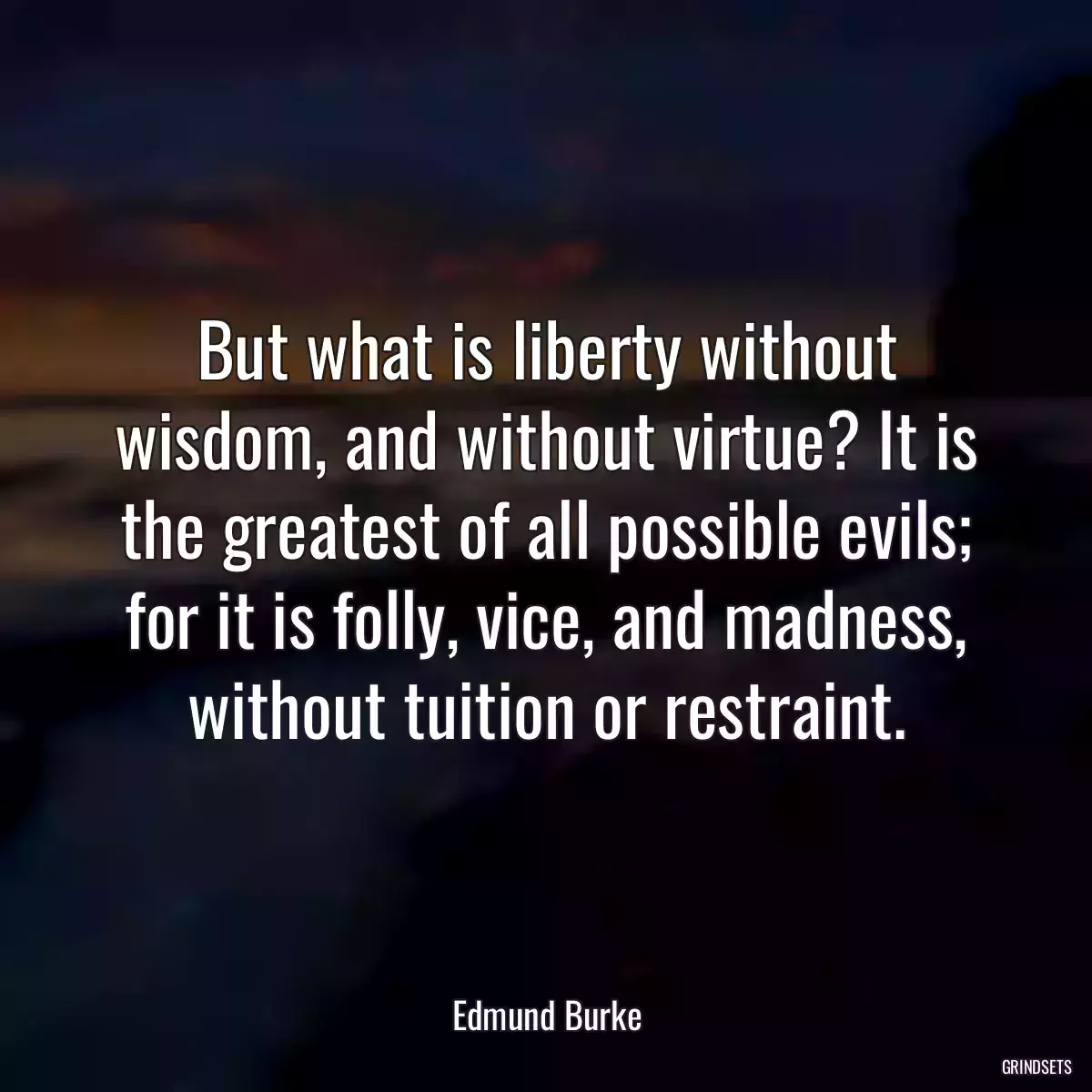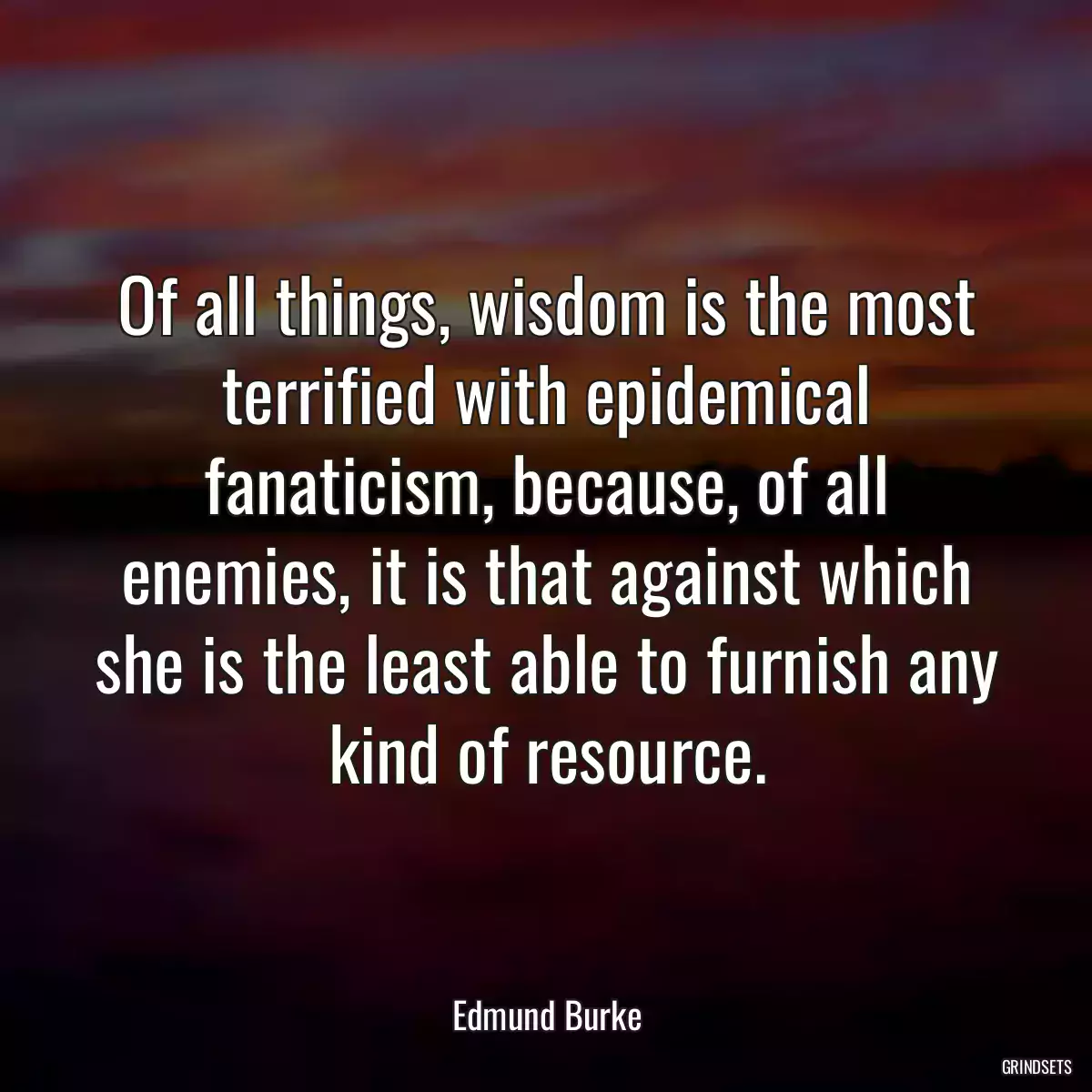
Quotes Edmund Burke
Find dozens of Edmund Burke with images to copy and share.

Nobody made a greater mistake than he who did nothing because he could do only a little.
The people never give up their liberties but under some delusion.
But the age of chivalry is gone. That of sophisters, economists, and calculators has succeeded; and the glory of Europe is extinguished forever.
You may also like
Early and provident fear is the mother of safety.
Whenever government abandons law, it proclaims anarchy.
We are in a war of a peculiar nature. It is not with an ordinary community, which is hostile or friendly as passion or as interest may veer about: not with a state which makes war through wantonness, and abandons it through lassitude. We are at war with a system, which by its essence, is inimical to all other governments, and which makes peace or war, as peace and war may best contribute to their subversion. It is with an armed doctrine that we are at war. It has, by its essence, a faction of opinion, and of interest, and of enthusiasm, in every country.
Those who have been intoxicated with power... can never willingly abandon it.
Those who have been once intoxicated with power, and have derived any kind of emolument from it, even though but for one year, never can willingly abandon it. They may be distressed in the midst of all their power; but they will never look to anything but power for their relief.

Obstinacy, sir, is certainly a great vice; and in the changeful state of political affairs it is frequently the cause of great mischief. It happens, however, very unfortunately, that almost the whole line of the great and masculine virtues--constancy, gravity, magnanimity, fortitude, fidelity, and firmness--are closely allied to this disagreeable quality, of which you have so just an abhorrence; and in their excess all these virtues very easily fall into it.
Men who undertake considerable things, even in a regular way, ought to give us ground to presume ability.
But a good patriot, and a true politician, always considers how he shall make the most of the existing materials of his country. A disposition, to preserve, and an ability to improve, taken together, would be my standard of a statesman. Everything else is vulgar in the conception, perilous in the execution.
In a free country every man thinks he has a concern in all public matters,--that he has a right to form and a right to deliver an opinion on them. This it is that fills countries with men of ability in all stations.
I set out with a perfect distrust of my own abilities, a total renunciation of every speculation of my own, and with a profound reverence for the wisdom of our ancestors, who have left us the inheritance of so happy a Constitution and so flourishing an empire, and, what is a thousand times more valuable, the treasury of the maxims and principles which formed the one and obtained the other.
A disposition to preserve, and an ability to improve, taken together, would be my standard of a statesman.
There never was a bad man that had ability for good service.
War," says Machiavelli, "ought to be the only study of a prince;" and by a prince he means every sort of state, however constituted. "He ought," says this great political doctor, "to consider peace only as a breathing-time, which gives him leisure to contrive, and furnishes ability to execute military plans." A meditation on the conduct of political societies made old Hobbes imagine that war was the state of nature.
You may also like

When a great man has some one object in view to be achieved in a given time, it may be absolutely necessary for him to walk out of all the common roads.